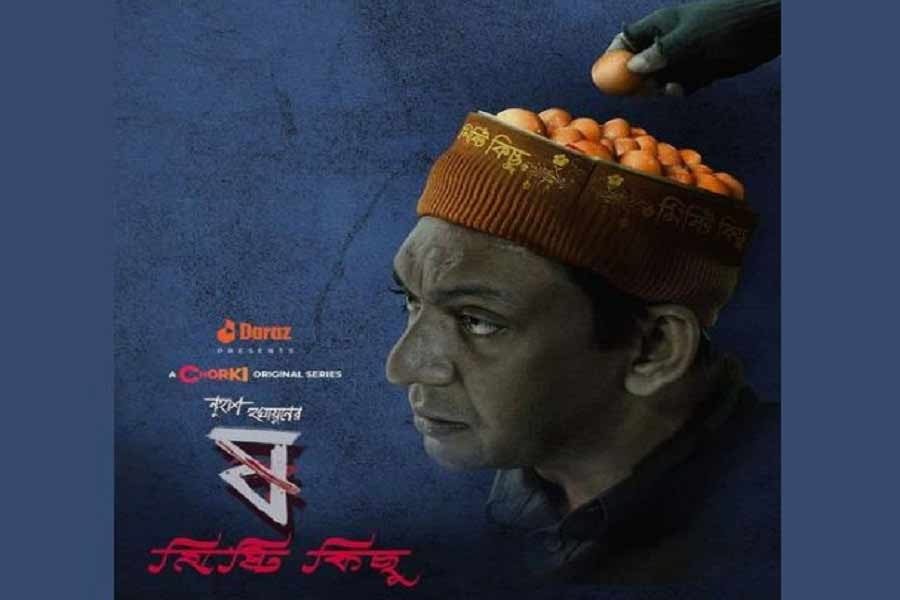“There is a myth regarding the sweetmeat shops, you know? After the evening falls, Jinns come there!”
This was the first interactive dialogue of the second episode of the anthology series ‘Pet Kata Shaw,’ directed by Nuhash Humayun.
Chanchal Chowdhury was the protagonist of the episode, while Afzal Hossain acted under a negative shade. Besides, Quazi Nawshaba Ahmed and Khalid Hasan Rumi were also there with their impactful presence.
However, the frame opens with Mahmud (Chanchal Chowdhury), a visibly absent-minded person, who is the owner of a sweetmeat shop named ‘Mishti Kichhu’ (which is also the name of the episode).
Naturally, this forgetful mind of his, or in another word, his amnesia, affects his daily life, business, relationships and everything else.
One night, a mysterious guy (Afzal Hossain) comes to his shop just after he closes the sales. He identifies himself as a jinn through some magical gestures. He says he has a craving for sweets, and in return for sweets, he gives Mahmud a unique power, the power of recalling everything. This is the point where the twist starts.

To discuss the main base of the short film, as per the writer’s view, the concept of identity has somehow played a major role in Mishti Kichhu. From the beginning to the end of this episode, turns and twists caused by identities were pretty constant.
In the first phase of the short, Mahmud’s wife complains to him that, maybe one day he’ll forget his way back home. This perception of her somehow amplifies the probability that Mahmud may lose all his memories one day, which is in another sense, losing his identity.
The director has fabulously played with the identity concept in the short. For example, firstly the mysterious man reveals his jinn identity with a special gesture.
Secondly, when the jinn sits down, it can be seen that he is holding a walking stick, which has a face of a goat sculpted at its top.
Thirdly, the jinn says, he survived an accident of falling down, which is why he needs to use a walking stick. All these hints point to his real identity, which was finally revealed in the last part of the short.
Next, after the jinn gives Mahmud the boon of recalling everything, somehow Mahmud starts to create a new identity for himself.
To his wife, he becomes the most romantic husband. To his customers, he becomes the most interesting and popular sweet-seller. Even, to the jinn, he proves himself to be the jinn’s brother by stating Einstein’s law. He starts to gather identities inside him one by one.
As the story advances, Mahmud somehow explores his identity as an infant, and then, his identity at the time of his birth, and even at the time when he was in his mother’s womb. He feels that the latter one is somehow his real identity, and that makes him want to go back to his mother’s womb again.

This was not the end. His exploration of identity continues. Finally, he gets back to the time when the universe was created, as well as his soul or Ru’h.
He explores his identity as a newly-created soul, which may be compared only to nothingness. Yes, in the climax, somehow, Mahmud explores nothingness and falls into the lap of death, the end of his identity.
In literature studies, there is a term called existentialism. This term is related to questions regarding humankind’s identity. For example, who are humans? Why are humans? Where have they come from?
Maybe, Mahmud, the sweet seller, gets the answer to these questions, sees through the mystery of (real) identity and faces the end of his identity.
Even, maybe his afterlife also will be identity-less, because, somehow, he got into a deal with the king of the jinns, the ‘Iblish,’ the ‘Shaitan.’


